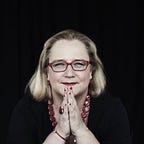100 Days to Make 100 Right Choices — May the New Director-General of World Health Organization do the Right Things
If the last year has taught us anything, it is that progress toward gender equality should not be taken for granted. From the reinstatement and dramatic expansion of the Global Gag Rule, to the defunding of the UN agency that supports reproductive health, to pandemic threats like Zika that disproportionately affect girls and women — the health and rights of half of the world’s population face an uphill battle.
But next week, there will be an election that could tip the scale back in the right direction. At the largest and most influential health policy meeting, the World Health Organization (WHO) will elect its new director-general. More than ever, we need a fierce and proactive advocate for gender equality at the helm of the world’s most powerful health agency.
All three candidates for the world’s health chief — Dr. Tedros Adhanom Ghebreyesus of Ethiopia, Dr. David Nabarro of the United Kingdom, and Dr. Sania Nishtar of Pakistan — have shown great intentions to be a champion for girls and women. But the new director-general’s actions during his or her first 100 days will signal whether they plan to follow through on campaign promises. Here’s how we’ll know if they do:
The director-general candidates each have pledged to reform WHO. Starting with their first statements, the new director-general should convey that promoting gender equality in health is foundational to this catalytic reform.
Next, the new director-general can build a robust transition team of experts and advocates with a track record of investing in girls and women. A key indicator of progress will be if WHO moves closer to their target of 45% female staff by September 2017, a goal set forth in the Geneva Gender Parity Pledge.
It’s not enough for women to have a seat at the table; they need to be heard at every level.
It’s not enough for women to have a seat at the table; they need to be heard at every level. The same goes for elevating the voices of youth, particularly girls, now that the world’s largest-ever generation of young people is poised to come of age.
The first 100 days of meetings also matter. For example, the new director-general should attend the family planning summit to be hosted by the UK government in July. Women’s ability to decide if and when to have children is not only the right thing to do, but a prerequisite for economic growth and progress for all.
The work doesn’t stop at meetings explicitly about girls, women or reproductive health. The next director-general must also speak up for girls and women in meetings on non-communicable diseases; on HIV/AIDS, because adolescent girls account for one-fifth of new HIV infections globally; on pandemics, because women are the frontline health workers who stop them; and in meetings on universal health coverage, because girls and women should have equal access to quality, affordable health services, including reproductive health services, yet are underrepresented in the political conversations that shape these outcomes.
Finally, we’ll know if the new director-general is prioritizing girls and women by looking at the information they choose to collect and make available. To ensure health progress is reaching everyone equally, this individual will close gaps in essential health data by counting every girl, woman and young person, and disaggregating these data by gender and age.
The next director-general should do all of this, not just because girls and women are disproportionately affected by global challenges, but because girls and women are powerful agents of change who lift up everyone around them.
In doing so, they will continue the spirit of transparency fostered by this unique election process. (For the first time in the WHO’s history, its leader will be elected by a vote of all 194 member states, instead of an executive board behind closed doors.) They will also strengthen the WHO’s engagement with civil society, both to align on communities’ real needs and create more spaces to be held accountable.
The next director-general should do all of this, not just because girls and women are disproportionately affected by global challenges, but because girls and women are powerful agents of change who lift up everyone around them. Investment in their health, rights and wellbeing will pay back plentifully and power progress for all.
Make no mistake: this may not be easy, especially in the current political environment. But a strong director-general will have the courage and conviction to make the right choices and to stand strong. Because when the world invests in girls and women, all of us share the victory.
